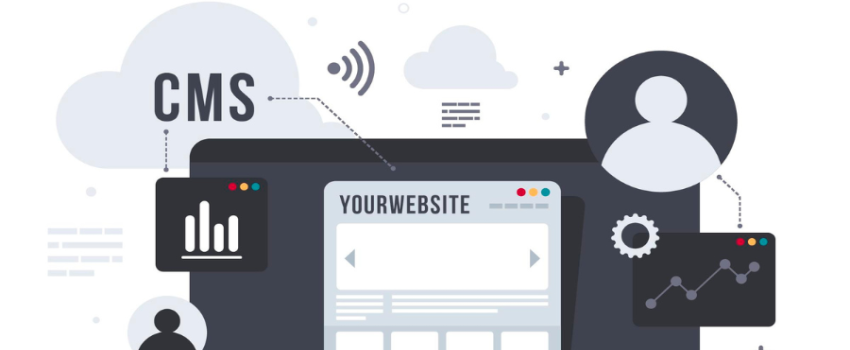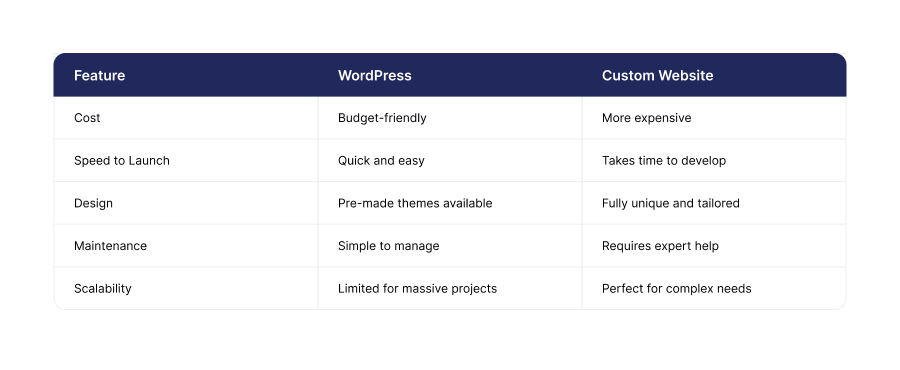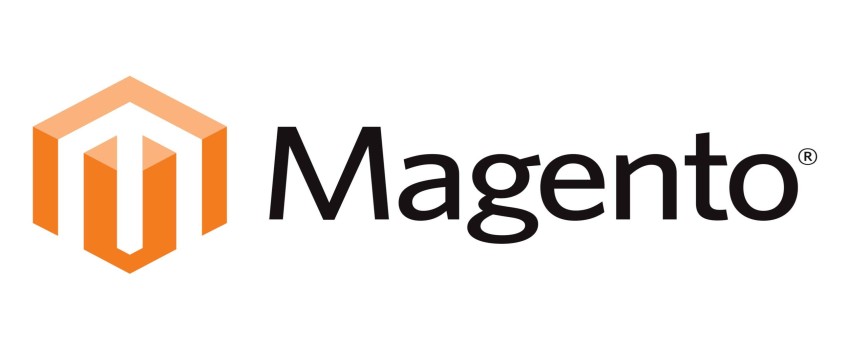Wordpress vs Custom website - Which one is better for Whom?

Overview
Websites are everywhere, and they come in different forms. Some are built using tools like WordPress vs Custom website, while others are specially made from scratch, called custom websites. Choosing between these two depends on your needs, budget, and goals. If you’re aiming for an SEO-friendly website, it’s essential to consider the strengths of each option. Let’s explore what each one offers.
WordPress - A Simple Yet Powerful Option
WordPress is like a giant toolbox with ready-made tools. It’s a platform where you can easily create websites without having much knowledge about coding. Plus, with the availability of WordPress CMS development, you can enhance your site’s functionality to make it truly stand out.
Why People Love WordPress:
Ease of Use: It’s beginner-friendly. You can drag and drop elements to build pages,
making it easy for anyone following a WordPress beginner guide.
Templates: Offers thousands of designs (called themes) that you can customize.
Plugins: Adds extra features, like contact forms or online shopping carts, without that
much effort. These Best WordPress
plugins are perfect for creating an SEO-friendly website.
Affordable: WordPress can be free or low-cost, depending on what you need.
Who Should Choose WordPress?
If you’re a small business owner, a blogger, or someone who needs a website quickly, WordPress
is an excellent choice. It’s also great for those working with a WordPress development company to create a simple,
functional website.
Custom Website - Built according to your needs
A custom website is like stitching a suit—it’s made to fit your specific measures perfectly.
Developers write code to design and build everything from scratch.
Why People Choose Custom Websites:
- Unique Design: Every part of the website reflects your brand, making it unique.
- Flexibility: You can add advanced features or make the site work exactly the way you want.
- Scalability: Custom websites can grow with your business needs.
- Better Performance: Because developers code specifically for you, they mostly load faster, contributing to a better user experience and SEO-friendly website performance.
Who Should Choose a Custom Website?
If you’re running a large-scale business, have complex needs, or want a one-of-a-kind website,
custom is the way to go. Partnering with a professional WordPress development company can also help integrate custom
features if needed.
WordPress vs Custom Website - Which One Fits You?

How to Decide?
- Choose WordPress if you’re just starting out or need a cost-effective, easy-to-manage SEO-friendly website.
- Go for a custom website if you want something unique, flexible, and scalable for your growing business.
To wrap-up:
Both WordPress and custom websites have their own values. WordPress vs Custom website comparison often comes down to what you prioritize. WordPress is perfect for beginners, small businesses, or bloggers who want something affordable and easy to manage, especially with the help of WordPress plugins. Custom web development over WordPress is ideal for businesses that need unique designs and advanced features.
In the end, the choice depends on your needs, goals, and budget. Whether you use a WordPress beginner guide or work with a WordPress development company, think about what matters most to you. Your website should reflect your vision while being functional and SEO-friendly. Make your decision wisely, and watch your digital space thrive!
Related to this
Let's Discuss Your Project











